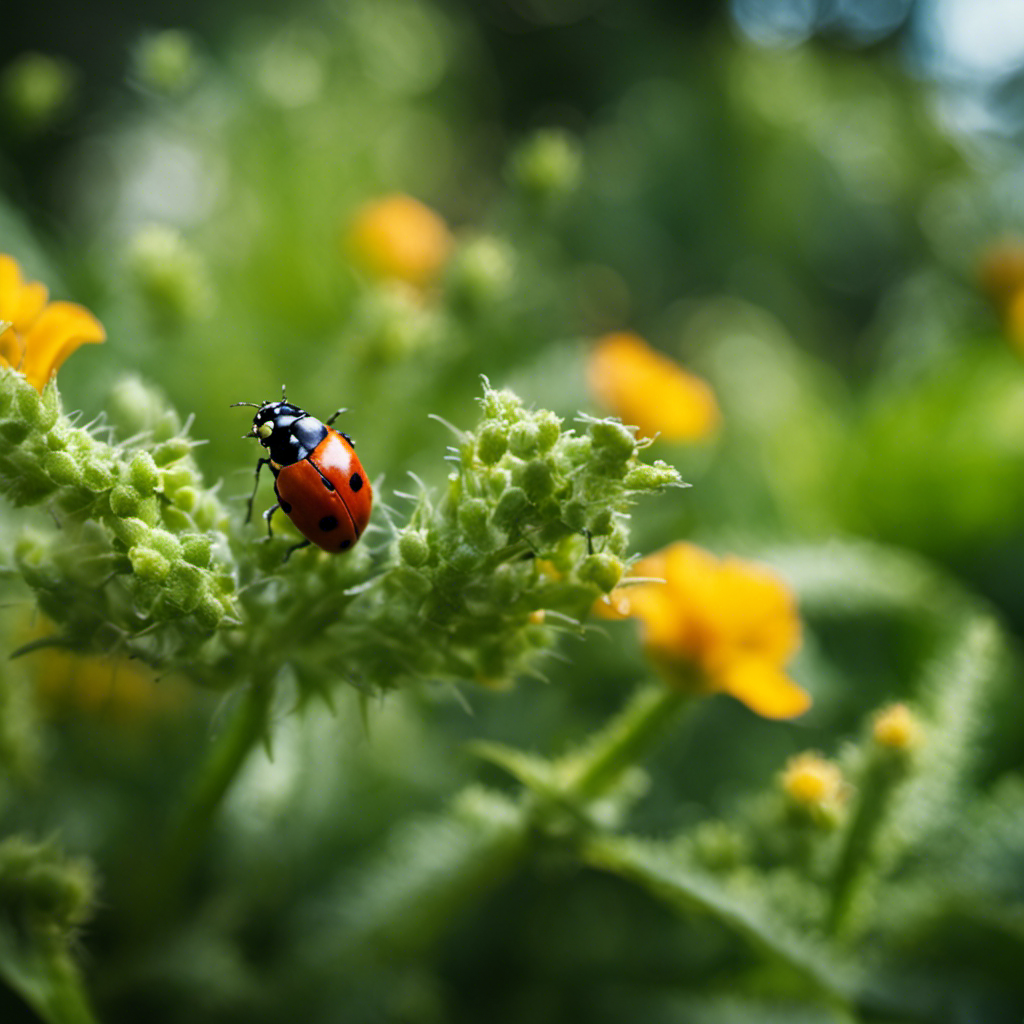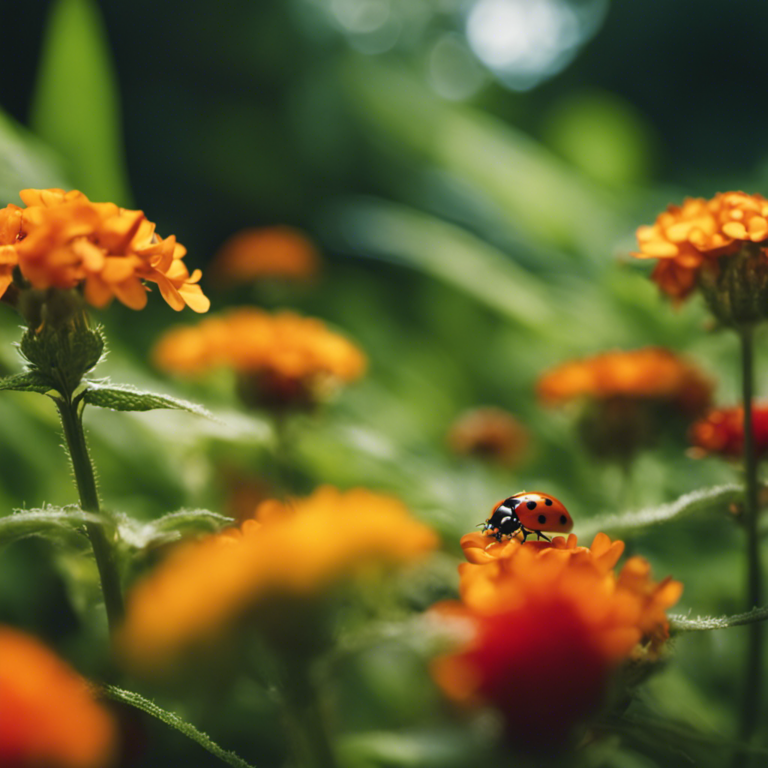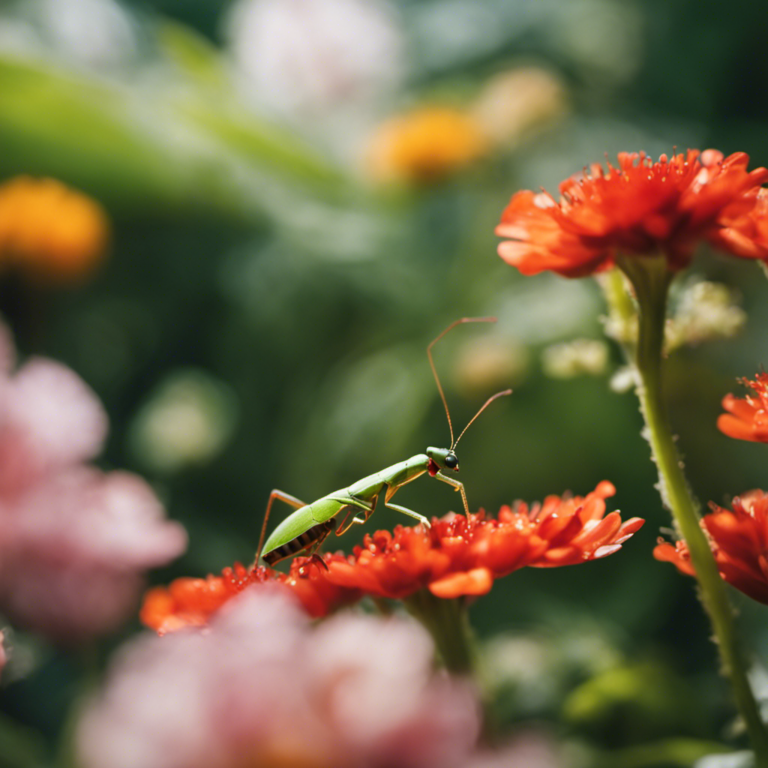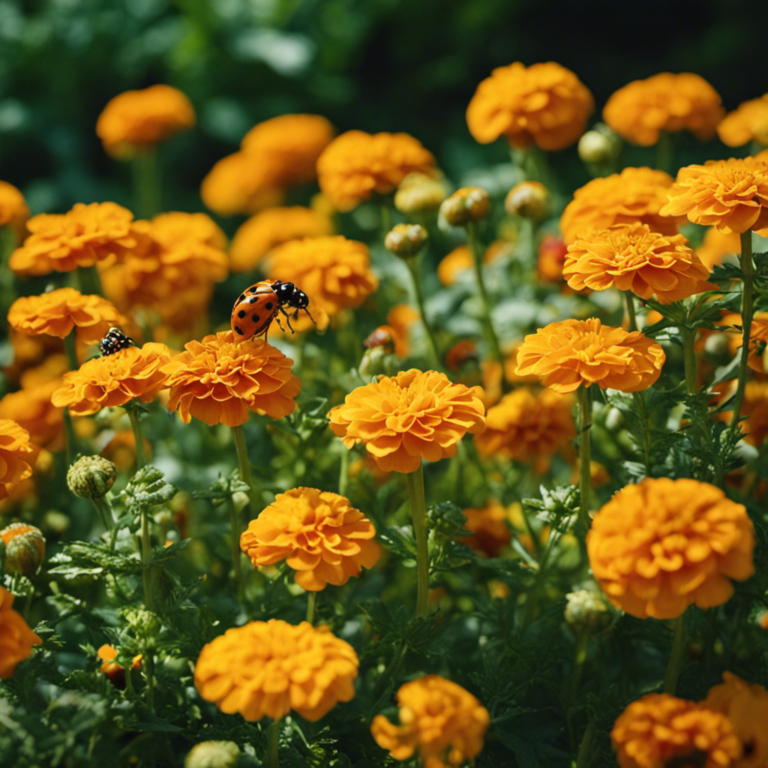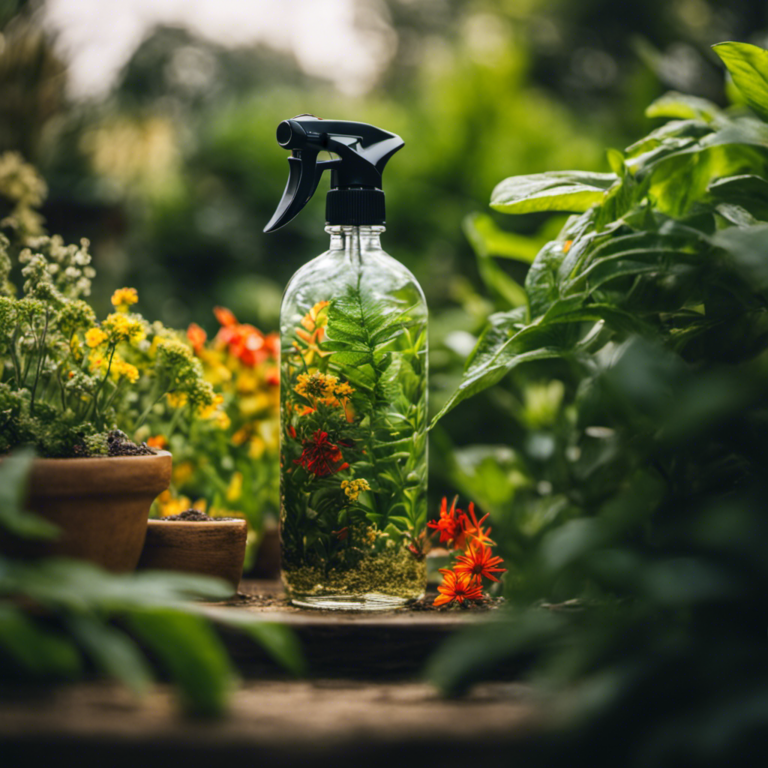Are you tired of pests wreaking havoc in your garden? Well, worry no more! In this article, we have effective pest control strategies tailored specifically for green thumb enthusiasts like yourself.
Discover natural repellents, beneficial insects, organic traps, and companion planting techniques that will effectively keep those bothersome critters away.
Additionally, we will share homemade organic pest control recipes that are guaranteed to get the job done.
Bid farewell to pests and say hello to a thriving garden!
Key Takeaways
Implementing natural pest control strategies can greatly benefit gardeners with a passion for eco-friendly gardening. It’s worth noting that a significant majority, over 90%, of insects found in gardens are actually beneficial or harmless. By attracting these beneficial insects, using organic traps and barriers, and practicing companion planting, gardeners can effectively manage pests without resorting to harmful chemicals. This approach not only protects the environment but also promotes biodiversity, creating a thriving garden ecosystem. So, by embracing these eco-friendly methods, you can achieve a healthy and vibrant garden while minimizing harm to the planet.
Natural Repellents and Deterrents

Use natural repellents and deterrents to keep pests away from your garden.
When it comes to natural pest control methods, essential oils are a great option for repelling unwanted critters. Certain essential oils, such as peppermint, lavender, and citronella, have strong scents that bugs find repulsive. You can create homemade sprays by diluting these oils in water and applying them to your plants.
Additionally, planting companion plants that pests dislike can also help deter them. For example, marigolds are known to repel aphids and nematodes, while basil can deter flies and mosquitoes.
Another effective deterrent is using physical barriers like netting or fences to keep pests out.
Beneficial Insects for Pest Control
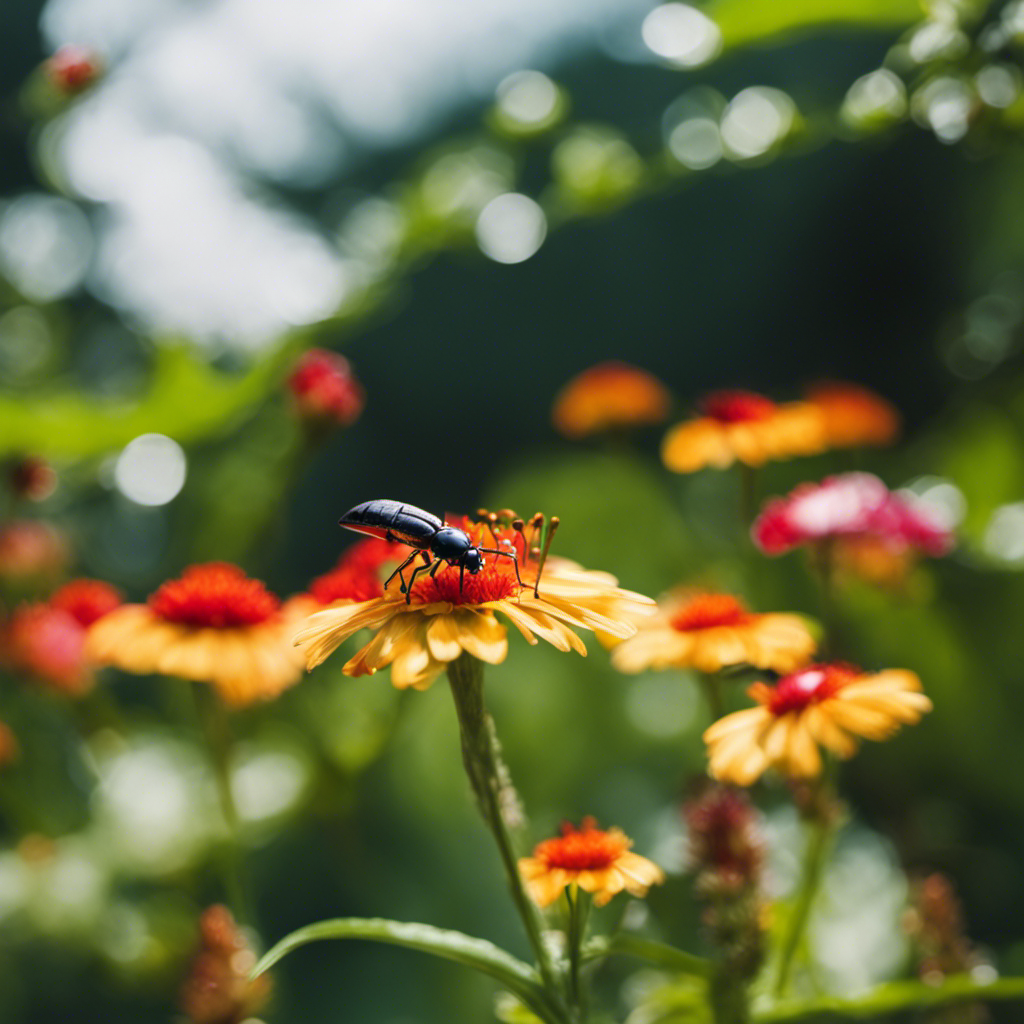
Using beneficial insects as a natural pest control method is a smart way to tackle garden pests. These insects act as predators, helping to reduce the population of harmful pests in your garden. By planting pest-resistant plants, you can create an environment that attracts beneficial insects.
For instance, flowers like marigolds and daisies can attract hoverflies and ladybugs, which prey on aphids and other harmful insects. Another effective approach is implementing biological control methods, such as introducing parasitic wasps or nematodes that target specific pests.
These methods are safe and environmentally friendly alternatives to chemical pesticides, and they can effectively manage pest populations. By harnessing the power of beneficial insects, you can maintain a healthy and thriving garden while minimizing the use of harmful chemicals.
Organic Traps and Barriers
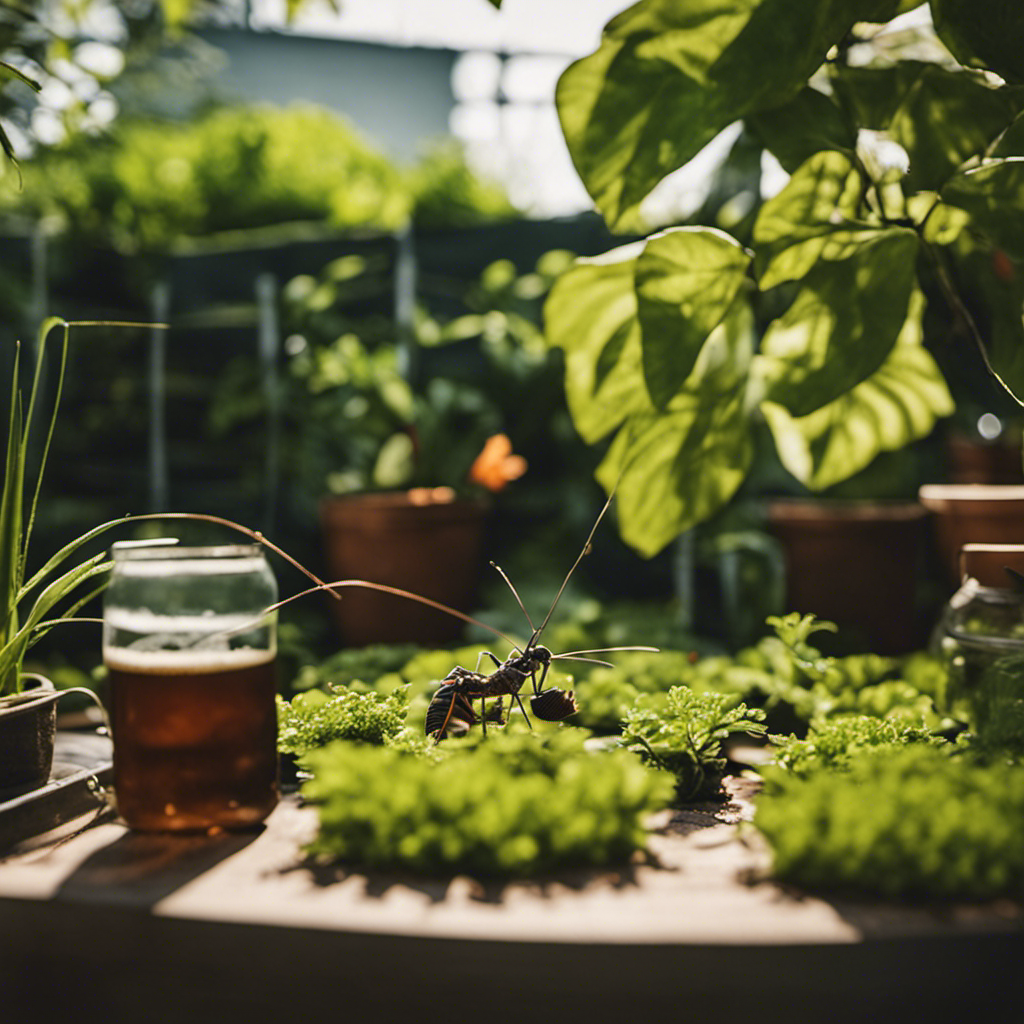
Protect your garden from pests using organic traps and barriers. These eco-friendly alternatives are effective and sustainable methods of pest management that don’t harm the environment or your plants.
Organic traps and barriers physically prevent pests from reaching your plants or attract them into traps for safe removal. Here are some examples of organic traps and barriers you can utilize in your garden:
- Sticky traps
- Pheromone traps
- Beer traps
- Yellow sticky cards
- Vinegar traps
For barriers, you can consider using mesh netting, row covers, copper tape, mulch, or plant collars.
Companion Planting for Pest Management

Maximize the effectiveness of your organic traps and barriers by incorporating companion planting for pest management in your garden.
Companion planting involves strategically planting certain plants together to deter pests and attract beneficial insects. This natural and balanced ecosystem helps control pests without the use of harmful chemicals.
For example, planting marigolds near your tomatoes can repel aphids and nematodes, while attracting hoverflies that feed on aphids.
Another effective method is crop rotation, where you change the location of your crops each year. This prevents the build-up of pests and diseases in the soil, as different crops have different nutrient needs and attract different pests.
Homemade Organic Pest Control Recipes
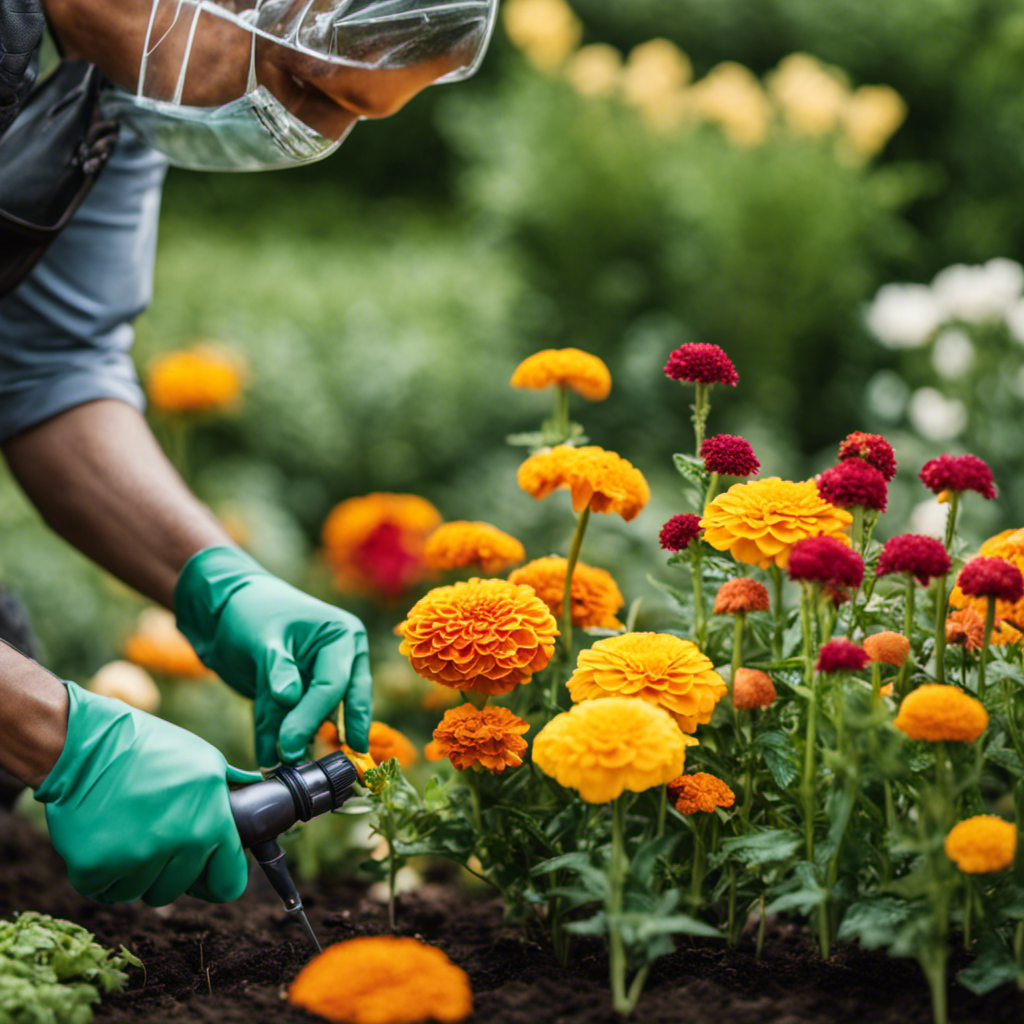
Maintain a natural and balanced ecosystem in your garden by incorporating homemade organic pest control recipes. These natural pest control methods are effective and environmentally friendly, ensuring the health of both your plants and the surrounding environment. Here are some useful pest control tips for gardeners:
-
Garlic and onion spray: Create a potent spray by blending garlic cloves and onions with water. This mixture acts as a natural repellent, keeping pests like aphids, caterpillars, and other pests at bay.
-
Neem oil: Dilute neem oil with water and apply it to your plants. This organic solution helps deter pests such as aphids, whiteflies, and mites.
-
Diatomaceous earth: Sprinkle this natural powder around your plants to control crawling insects like slugs and snails. It provides an effective barrier against these pests.
-
Chili pepper spray: Boil water and add crushed chili peppers. Allow the mixture to steep overnight, strain it, and use it as a spray to discourage pests. The spicy nature of chili peppers acts as a natural deterrent.
-
Soap spray: Mix liquid dish soap with water and spray it on your plants to combat pests such as aphids, whiteflies, and spider mites. The soapy solution disrupts their cellular structure, effectively controlling their population.
Conclusion
Implementing natural pest control strategies can greatly benefit green thumbs.
It’s interesting to note that over 90% of insects found in gardens are actually beneficial or harmless.
By attracting beneficial insects, using organic traps and barriers, and practicing companion planting, gardeners can effectively manage pests without resorting to harmful chemicals.
So, by embracing these eco-friendly methods, you can create a thriving garden while protecting the environment and promoting biodiversity.
